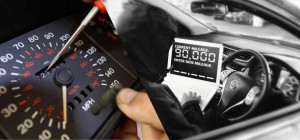 In 2017, GPS (global positioning system) lives up to its name of being global. All over the world, GPS tracking for car services exist, as well as for a variety of other reasons. When they were first developed, it was to support the US military and, later, other military forces. However, today, anyone can now have access to the satellite navigation system to locate people or objects.
In 2017, GPS (global positioning system) lives up to its name of being global. All over the world, GPS tracking for car services exist, as well as for a variety of other reasons. When they were first developed, it was to support the US military and, later, other military forces. However, today, anyone can now have access to the satellite navigation system to locate people or objects.
The Development of GPS Tracking for Car Facilities
The original GPS trackers were big and bulky devices and not fit for purposes of the commercial market. It quickly became clear that different people wanted to use these devices for different purposes. For instance, a logistics company may use it in an effort to monitor the location of their fleet. Indeed, the transport authorities saw a golden opportunity in GPS systems, creating a database for every vehicle on their fleet. It even enabled them to stop their employees from driving too fast or too rash.
Fleet tracking is also made a lot easier thanks to GPS trackers, enabling businesses to monitor and track their entire shipment orders. The trackers send out useful and accurate information that ensures supervisors are able to get the results they need. Indeed, it enables them to chart performance and make sure no assets or goods are ever misplaced. If something or someone is lost, it can easily be determined where it is. Organizations are able to track where their vehicles are located, regardless of whether the engine is active or inactive. They are also able to determine the route their vehicles have taken, in case their designated drivers take routes they are not supposed to, according to company policy. This also means that these companies can build better relationships with their clients and suppliers. Since drivers are aware that their activities are being monitored, they are less likely to engage in monkey business while on duty, and this means they will perform better.
Some have even seen a decrease in cost and, therefore, increase in profit, thanks to these systems. Most companies provide fuel cards to their drivers for whenever they need to refuel their designated vehicles. GPS systems track the routes vehicles use, and using the report generated from the GPS system, the supervisors in charge of fleets can determine whether the fuel consumed in a trip matches the fuel indicated in the fuel card’s invoice, and they can make calculations to determine the amount of fuel that a particular kind of vehicle can consume for a specific trip. With this knowledge, drivers are less likely to waste fuel money or credit or take unnecessary detours while on duty. This saves companies a lot of money because most companies can often lose millions of dollars a year on their fleet’s fuel alone.
Today, GPS systems are used all over the world to find individuals and for a variety of different reasons. For instance, delivery or Uber drivers can be kept under surveillance not just to see where they are and when, but also to help keep passengers safe. There are GPS systems that can even tell the speed a vehicle is moving, and send alerts to supervisors whenever a set speed limit is exceeded. Furthermore, parents can use it to track their children, taxi drivers can use it to find directions and more. Indeed, almost every rental vehicle is now fitted with a GPS tracker for two reasons:
- To help drivers navigate in the area in which they are.
- To ensure vehicles can be found again if they were to be stolen.
Using GPS, almost anything whose location needs to be tracked can be pinpointed. Various companies have emerged to facilitate this service, and organizations have found it invaluable. GPS technology truly has changed the way the world works, both in terms of business and in terms of individuals. It may have come from the military, but it is in everyday life that it has really become clear just how useful it actually is. Today, there are lots of different types of trackers available, offering different types of information, thereby making sure that people can get systems that work specifically for them. Naturally, this is an ongoing development, and manufacturers are constantly looking for ways to make these devices smaller, faster, and more accurate all the time. However, even with the technology that is available today, you are guaranteed to be able to find something that suits your specific needs – and budget.
In the near future, GPS systems will be tiny, faster, precise, and above all way more affordable than they are today. We’ll be seeing them everywhere and in almost anything that can be or needs to be tracked. The technology has come a long way, and its usefulness has proved to be indefinite.







